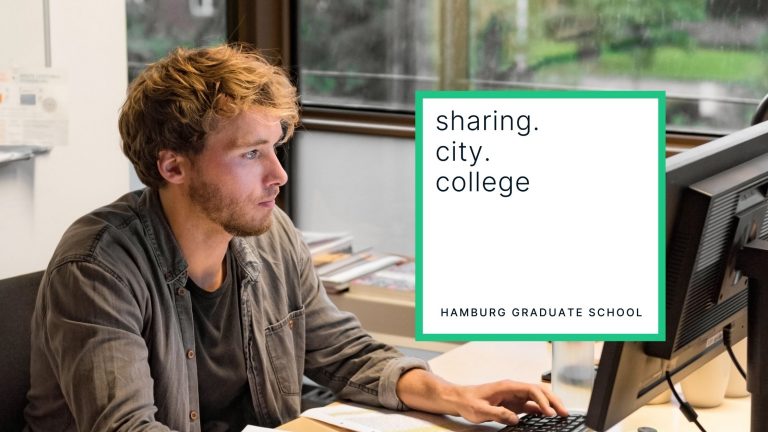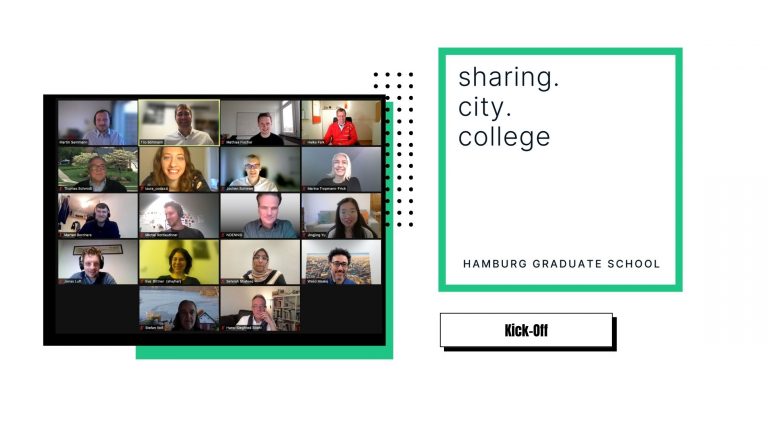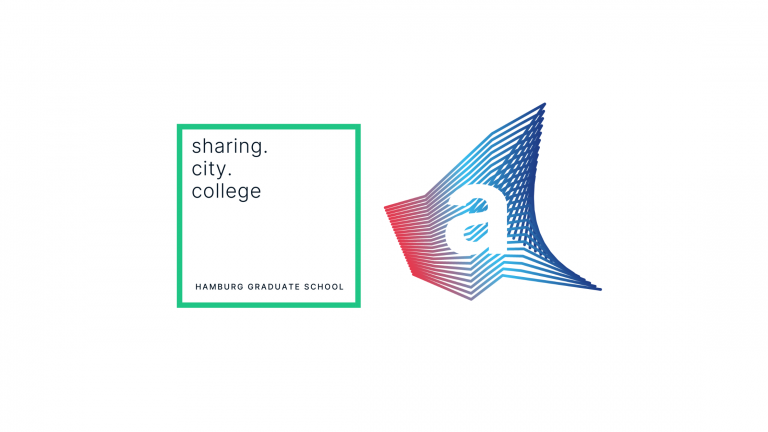
sharing.city.college
Hamburg Graduate School
for Data-Driven Participatory Smart Cities
The sharing.city.college is seeking for talented graduates with strong computing background who are interested in pursuing a doctoral project which focuses on studying or designing data-centered participatory smart cities, including smart city infrastructures, systems, and services.
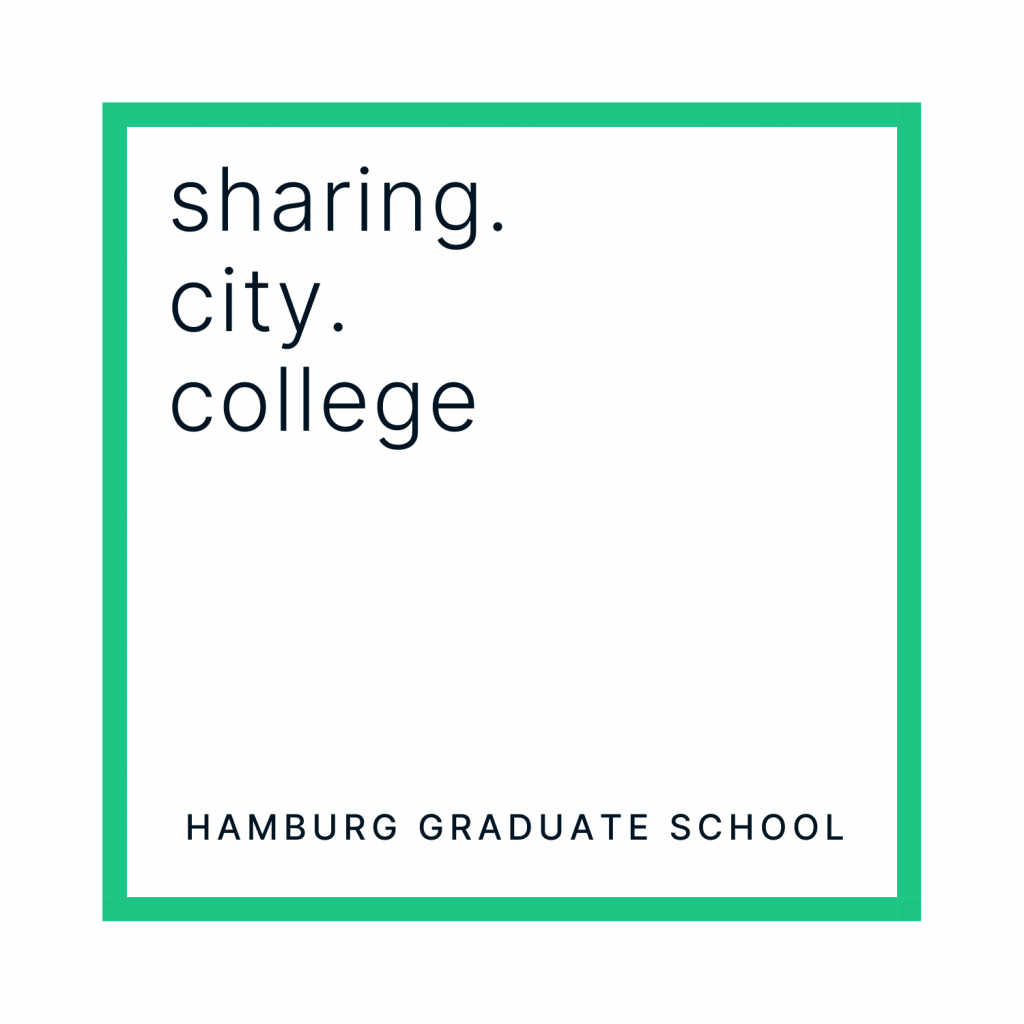
sharing.city.college
Metropolitan areas around the globe are facing huge logistical, societal, and ecological challenges. The rapid urbanization, climate change, and demographic change confronted with resource scarcity in urban areas have led to various stressors such as pollution and congestion, which directly impact the quality of life.
The response of computer science and technology to those challenges is often called
“smart city”
About the Idea
This concept denotes a system of systems, where a large amount of heterogeneous data, partly collected by Internet of Things (IoT) sensors, is processed in an intelligent way to efficiently manage scarce resources (such as green areas, mobility services, or energy) and to create services, which increase the citizens’ quality of life. Citizens represent a key enabling component of a smart city, i.e. users, who not only generate and share a large part of the data, but also play a central role in designing, promoting, and feeding smart city systems and services. The participation of users in the design, development, and usage of smart city services is thus crucial for a sustainable, data-centered smart city, which we call :
sharing.city
Hamburg, one of the most dynamic and digitized cities in Europe, represents a perfect candidate of a sharing.city. For instance, the Hamburg Open Data portal transparenz.portal and the underlying regulation were amongst the first in Germany and is now followed by other cities and states. Hamburg has also already a variety of smart city projects and services as the smart port or autonomous cars in the heart of the city as well as a long tradition of citizen participation. Moreover, projects like Hamburg Open Science or Urban Data Hub build unique research collaboration platforms, which facilitate the development of sharing.city services.
sharing.city.college
The sharing.city.college is a possible blueprint for a Hamburg-wide graduate school in computer science. The sharing.city.college is expected to pilot and evaluate formats for advancing the development of junior researchers, such as a summer school, international fellowships for leading researchers engaging junior researchers, research courses, development of demonstrators, engaging in citizen science and sharing research findings with practitioners and the public.
Research Areas
Engineering sharing.city
Citizen Data Science
Smart, Sharing Infrastructures
sharing.city
Science
sharing.city
- User and citizen participation systems and processes
- Methodologies and tools to design, develop, test, and maintain data-driven systems and services
- Engineering, managing and applying sustainable, socio-technical systems
- Empirical studies, approaches, and tools for user participation and user involvement
- Feedback and decision-making platforms at large
- Architectures and frameworks for the collection and mining of user data
- Crowdsourcing, Crowd-sensing, and Citizen Science
- Incentive systems, including gamification, badges, and data donation
- Collection, management, and validation of citizen and sustainability requirements
- Sustainability design and value driven software engineering
Science
- Data Engineering, Data Science Lifecycle and Machine Learning for Smart Cities
- Learning approaches for sharing.city, in particular, federated learning, transfer learning, and cross modal learning
- Machine learning with user-in-the-loop
- Data privacy, data governance, and data protection
- Data quality assurance including quality metrics, fake data, data manipulation, authenticity, actionability, and reliability
- Machine learning applications for constructive participation systems
- Data integration and augmentation
- Learning from social media data, sensor data, and governmental data
- Explainable AI
- Energy- and resource-efficient smart devices and services
- Scalable and reliable architectures
- Distributed architectures for cyber-physical systems
- Hardware/software co-design
- Design of safety-critical and mixed-critical systems
- Distributed data processing and learning
- Learning sensors and learning infrastructures, smart, context-aware IoT
- Adaptive and resilient socio-technical systems
Initiators
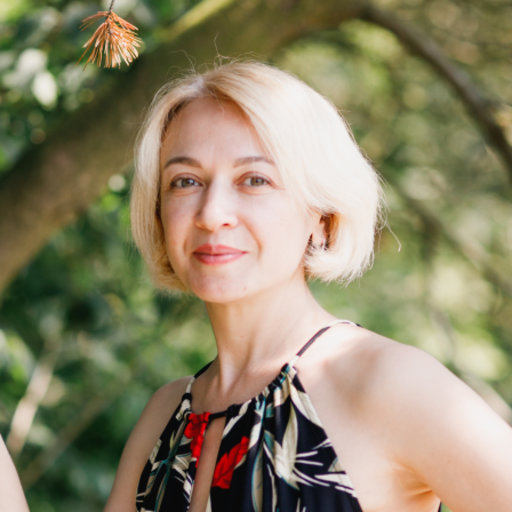

Heiko FalkTUHH

Walid MallejUHH
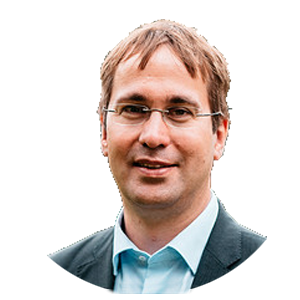
Tilo BöhmannUHH

Martin Semmannahoi.digital
Application
Within the graduate school we encourage applications that tackle at least one of the aforementioned areas of research. Additionally, we seek to build a strong collaborative environment that benefits from heterogeneous perspectives, methods, and research traditions.
The graduate school commits itself to the principles of open science. Thus, we seek to apply and contribute to open data, open methods, and open access, i.e. Hamburg’s Urban Data Hub. Graduate school projects should ideally lead to prototypes which can be tested in the sharing.city Hamburg.
- Eligible for applicants are researchers in computer science who are affiliated to one of the computer science departments at the HAW, TUHH, and UHH that constitute ahoi.digital
- Original, excellent, and sound research proposal with an outline of the contribution towards the broader research themes (max. 4 pages)
- A proposal of the contribution to joint activities of the graduate school by the supervisor and co-supervisor (i.e., teaching activities, chairing distinguished lectures) (max. 1 page)
- Commitment of a second supervisor from a different ahoi.digital institution
- Statement of the joint supervision of the PhD project regarding the collaborative nature of the project, feedback loops, mentoring, and possibilities for joint publications (max. 1 page)
- Statement on the impact on Hamburg as testbed for sharing.city, potential links to initiatives and actors (max. 1 page)
- List of reviewer suggestions (at least 2)
The graduate school sharing.city seeks to elevate original research ideas with an outstanding potential from a scholarly as well as societal perspective regarding smart cities. Thus, the application is based on a project proposal by PIs. Prospective PhD students will apply for selected projects. All applications that are eligible, based on timeliness and completeness are evaluated by independent external referees.
The final decision is made by the selection committee which consists of:
- three senior researchers from outside Hamburg
- one senior researcher from Hamburg that is elected by the ahoi.digital coordination commission
- one representative of smart city Hamburg that is knowledgeable about the digital strategy of Hamburg
- the managing director of ahoi.digital
The decision is based on the following criteria:
- Originality and potential of the research proposal
- Fit to one or more of the broader research areas addressed by the graduate school
- Originality and fit of the outlined contribution to the joint activities of the graduate school
- Fit to the goals of ahoi.digital as addressed in the statement of joint supervision and the statement on the potential impact
- Deadline for application: Applications should be sent to Dr. Martin Semmann
martin.semmann@uni-hamburg.de by 30th September 2020. - Final decision by 16th November 2020
- Call for application by prospects by 23rd November 2020
- Selection of candidates by 07th December 2020
- Start date: 01st February 2021
Projects
Within the graduate school we encouraged applications that tackled at least one of the aforementioned areas of research. Additionally, we seeked to build a strong collaborative environment that benefits from heterogeneous perspectives, methods, and research traditions.
The graduate school commits itself to the principles of open science. Thus, we seek to apply and contribute to open data, open methods, and open access, i.e. Hamburg’s Urban Data Hub. Graduate school projects should ideally lead to prototypes which can be tested in the sharing.city Hamburg.
- Prof. Matthias Mnich, TU Hamburg, Institute for Algorithms and Complexity
- Prof. Petra Berenbrink, Universität Hamburg, FB Informatik
The transition of the European Union towards a carbon-neutral modern economy is one of the major challenges of this decade. As one key means, a decentralized generation and trading approach of elec-trical energy by so-called prosumers from renewable sources is promoted. This way, households gen-erate parts of their consumed electrical energy from solar panels, and trade remaining energy and excess energy within their community and the large supplier. In this project we address the challenging algorithmic questions arising in such “smart grid” settings: How much self-generated energy to con-sume and how much to sell? How to implement trade through smart contracts? At which prices and at which times to sell, and buy, energy from other prosumers and the supplier? What is the best strat-egy to decide how much energy to generate, and at which at which cost? How to use blockchains to verify the integrity of trades? How to ensure 99.99% availability of power? How to forecast energy consumption with uncertain demands and uncertain solar power? The goal in this project is to devel-oped advanced algorithmic methods to answer these questions, to implement these methods and make them work in real-life, to make a strong impact on our future society.
- Prof. Dr. Thomas C. Schmidt, HAW-Hamburg, Dept. Informatik
- Prof. Dr. Andreas Timm-Giel, TU Hamburg, Electrical Engineering, Computer
Science and Mathematics
The objective of SUSTAIN is to establish a distributed urban sensing system that can
autonomously perform its measurement tasks in a sustainable, resilient way for an unlimited
time. The SUSTAIN network opens a maintenance-free option of easy user participation in urban
data acquisition and sharing, laying open grounds for environmental and socio-technical studies
as well as digital twins in the Hamburg metropolitan area.
The network consists of energy-neutral, next generation ECO-Boxes, a (successor of the)
hardware-software co-design for harvesting, measuring, and managing nodal energy with the
RIOT IoT operating system. Within this network, nodes autonomously coordinate their available
resources and jointly optimize operations to sustainably and reliably perform their sensing
duties with the best possible coverage.
This project tackles key topics of the sharing.city.college in the areas „Smart, Sharing
Infrastructures“ (energy, scalability, distribution, hw/sw co-design) and „Engineering
sharing.city (empirical tools, architectures, crowd-sensing). The major research challenges of
SUSTAIN are in ultra-lean distributed resource coordination, adaptive system
reconfiguration via dynamic voltage and frequency scaling, robust and resilient data
replication and aggregation based on low-power mesh networks, generic management and
integration into the multi-purpose RIOT operating system for low-end devices.
- Prof. Dr. Jochen Schiewe, HafenCity Universität Hamburg
Lab for Geoinformatics and Geovisualization (g2lab) - Prof. Dr. H. Siegfried Stiehl, Universität Hamburg
Department of Informatics | Image Processing Research Group
SmartCities produce and require more and more heterogeneous data sets. In addition to the various digital databases and maps, crowdsourcing and citizen science approaches and projects make more and more user-generated data available (e.g. OpenStreetMap). Furthermore, data from various sen-sors contribute to the huge data availability. Successfully linking such huge and heterogeneous data sets is necessary to exploit the semantic information within and enable innovative applications. To establish this link, spatial relationships can be the key.
In this project, the georeferencing of historical and modern maps is taken up as an example for the problem area. The specific task is to automatically recognize persisting geographic features via OCR and keypoint detection and to match them between documents. There are manifold applications in this context: In particular, the solution to the georeferencing problem allows long-term monitoring of settlement and landscape developments and disposal of unexploded ordnance. The results will also have an impact on other tasks, such as the filling of incomplete modern maps from older stocks (data fusion), the semantic search in maps (e.g. by place name or spatial feature) as well as the „time and place independent provision of scientific sources“ as a new task of archives.
- Prof. Dr. Eva Bittner, Universität Hamburg, Department of Informatics
- Prof. Dr.-Ing. Jörg Noennig, HafenCity Universität Hamburg HCU, City Science Lab
Making diverse data accessible and understandable for citizens as well as planners and authorities throughout multifaceted urban planning processes is a key challenge toward participatory planning for smart cities. Citizens as experts of their own environment can be important partners in urban development, if they receive contextualized assistance in understanding planning alternatives and in interpreting and building on the vast amount of data available at different stages of the participation process. This project aims at enabling citizens to contribute in a more focused way while actively working with participation tools, e.g. for co-designing urban living solutions together with intelligent assistance systems. In order to achieve this research objective, new interaction models, methods, and prototypical systems in the field of machine learning and data science need to be developed and evaluated in the application domain of participatory urban planning and design. The project contributes technical (complex data integration processes and machine learning workflows for diverse data types, specific data infrastructure in urban planning, heterogeneous users) as well as socio-technical design knowledge (working practices and interaction models) for bridging existing gaps between citizens and professionals in participatory urban planning and design.
- Prof. Dr. Stefan Voß, Universität Hamburg, Institute of Information Systems, Fachbereich Informatik
- Prof. Dr. Volker Skwarek, Hochschule für Angewandte Wissenschaften Hamburg, Faculty of Life Science
This project aims to provide, after thorough investigation, integrated innovative solutions for urban public transportation. The focused urban public transportation includes the land transport and the city-connected waterway transport, both of which play vital roles in the contribution to the concept of smart city mobility and logistics. The growth in passenger flow, increasing energy consumption, and more stringent environmental requirements lead to sub-optimal use of urban public transportation capacity in terms of modal units, buses, subways, trains, vessels (ferries) and associated infrastructures. By using multi-agent based microscopic simulation, artificial intelligent optimization, satellite remote sensing, and data mining, four major achievements are expected by this proposal, which are a decision support system to provide an estimation of traffic delays, a mobile app to monitor real-time energy consumption, a microscopic traffic operation behavior analysis system to guide smart driving and sailing of vehicles and vessels, and an impact analysis-towards a framework for Pandemic. Based on that, a smart city logistics system involving the station/terminal, buses, subways, trains, vessels, and associated infrastructures is conducted to facilitate the smooth urban public transportation and increase the transport capacity. The results will support implementing generally recognized qualities for environmentally friendly, cost efficient, and effective urban public transportation.
- Prof. Dr. Mathias Fischer, Universität Hamburg, Fachbereich Informatik
- Prof. Dr. Thomas Schmidt, Hochschule für Angewandte Wissenschaften
(HAW), Department Informatik
The Internet of Things (IoT) is the main driver for the digitalization of smart cities. For the
interconnection of IoT devices and provisioning of smart city services, a multitude of platforms
or middlewares have emerged. They allow to obtain and process data from connected sensors
in real-time, which resembles the concept of complex event processing (CEP). In CEP low-level
events are combined to complex events at higher abstraction levels. To prevent manipulations by
malicious users and attackers, the data integrity of complex events needs to be protected. This
requires to protect their complete composition starting from low-level events, like sensor values,
several levels of dependent complex events and intermediate results, all of them potentially
originating from different devices. This project will develop novel approaches for protecting
the data integrity and trustworthiness of data in CEP settings. For that, we will look into
cryptographic approaches, but also into the application of trust management. Moreover, we
will investigate the combination of integrity protection and trust management to combine the
advantages of both and enable scalable protection of smart urban data against manipulations
and attackers.
Job Offers
No vacancies at the moment

